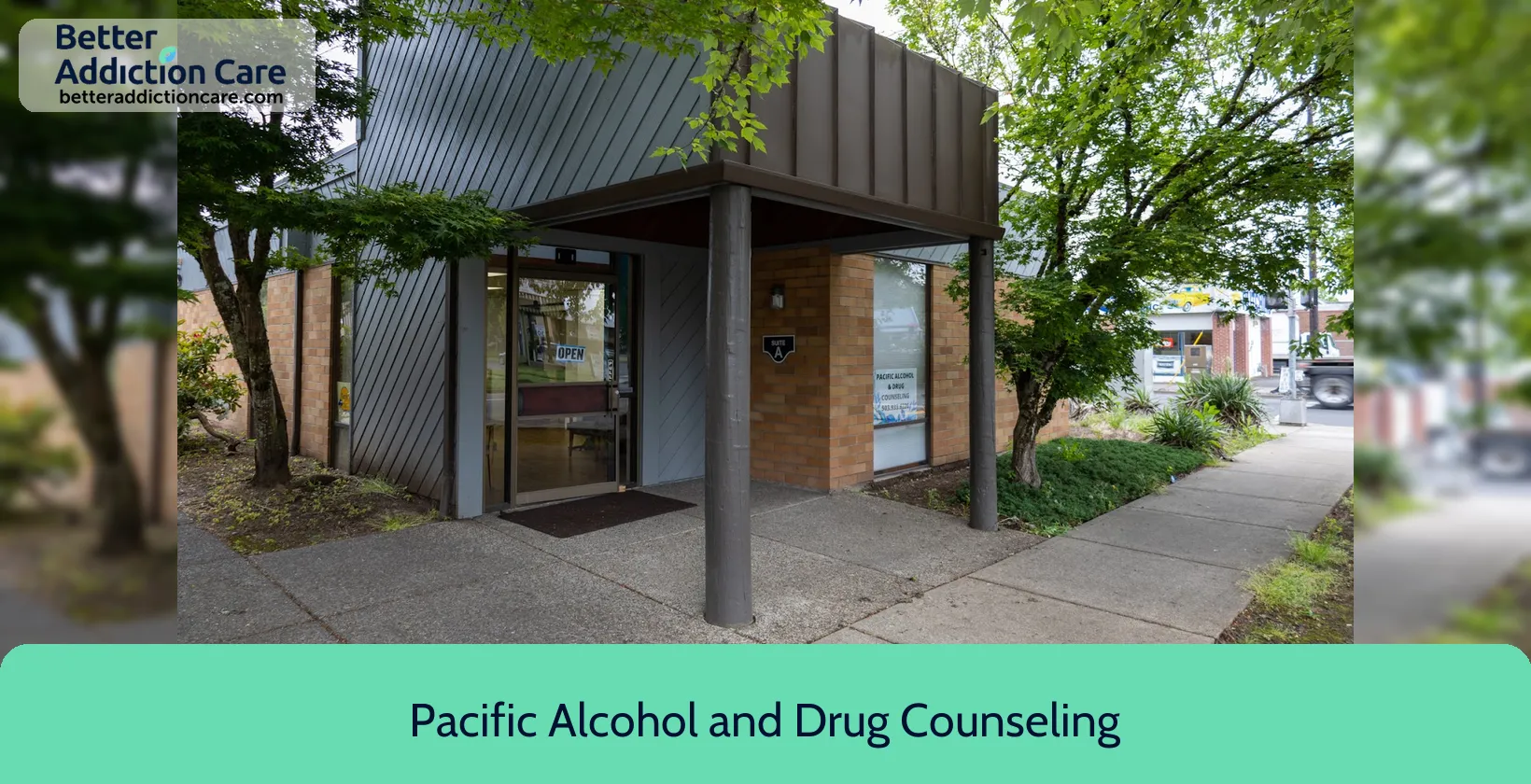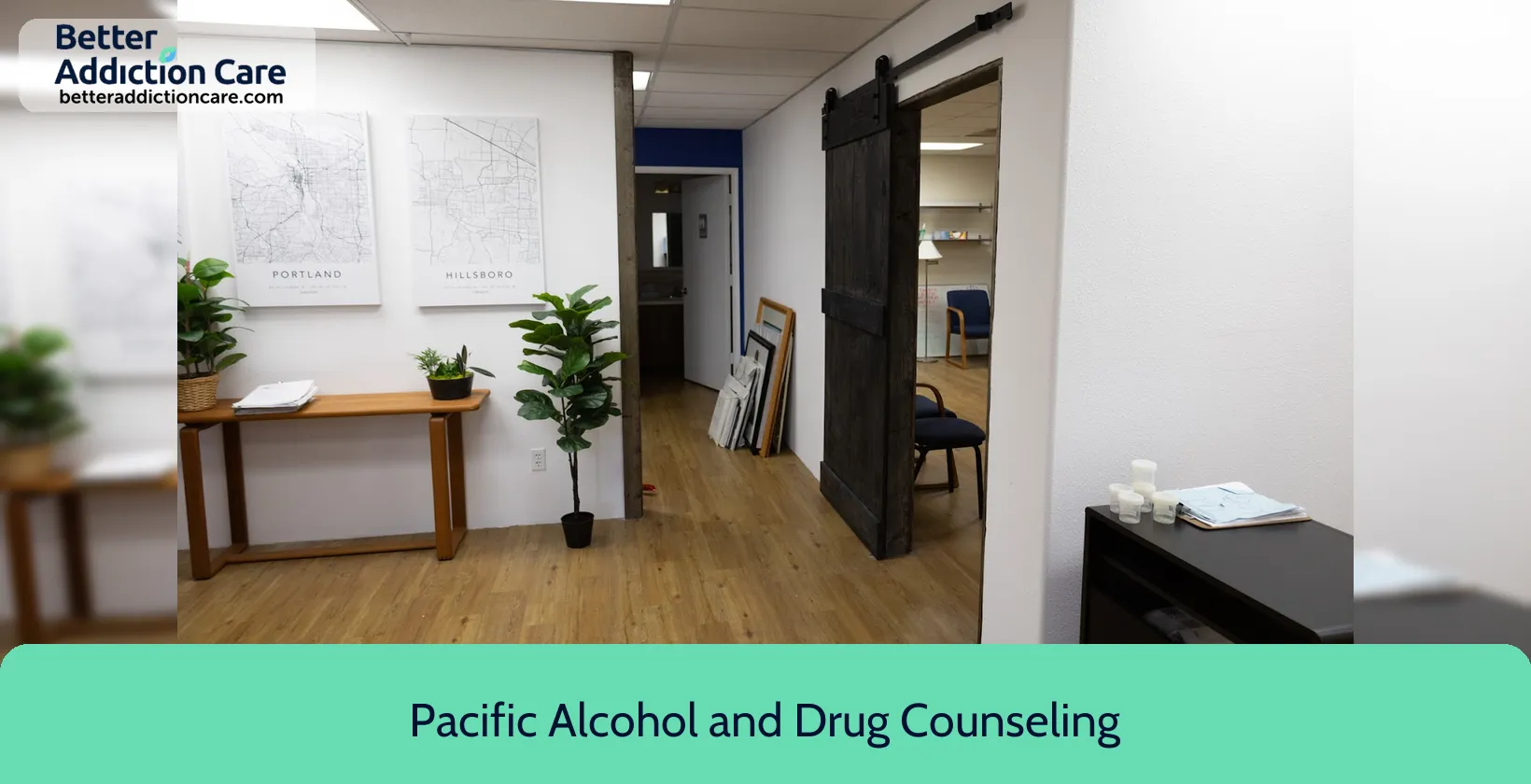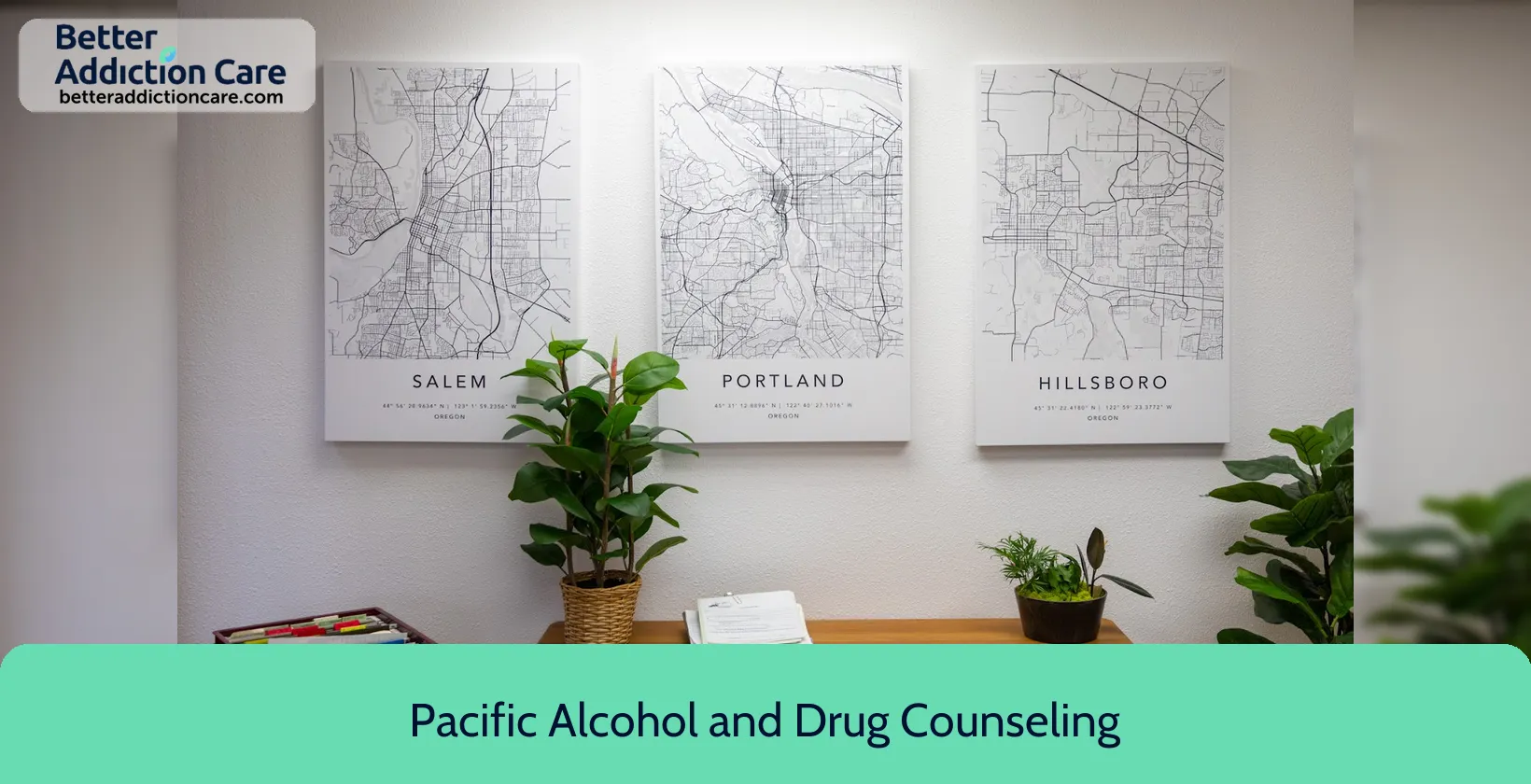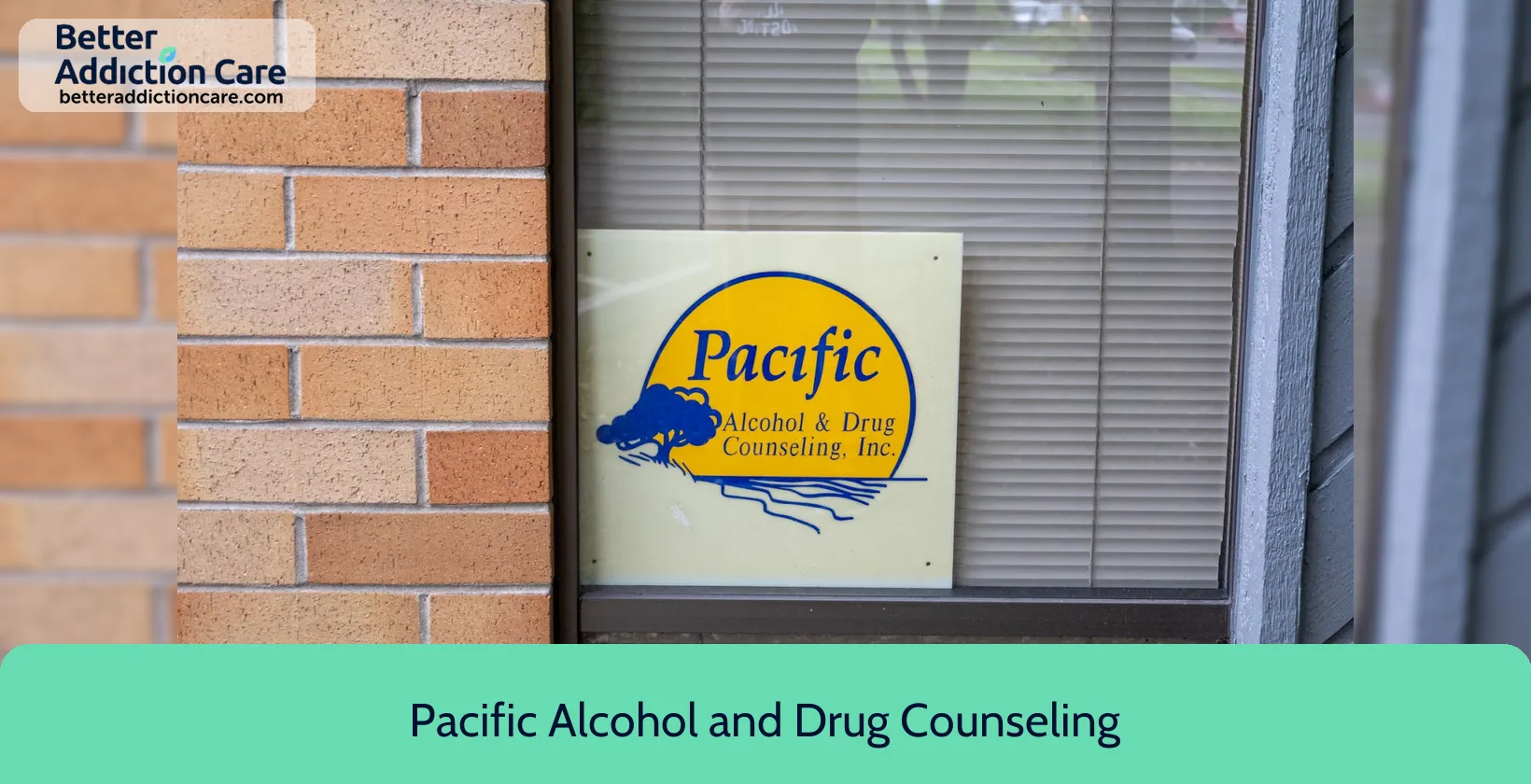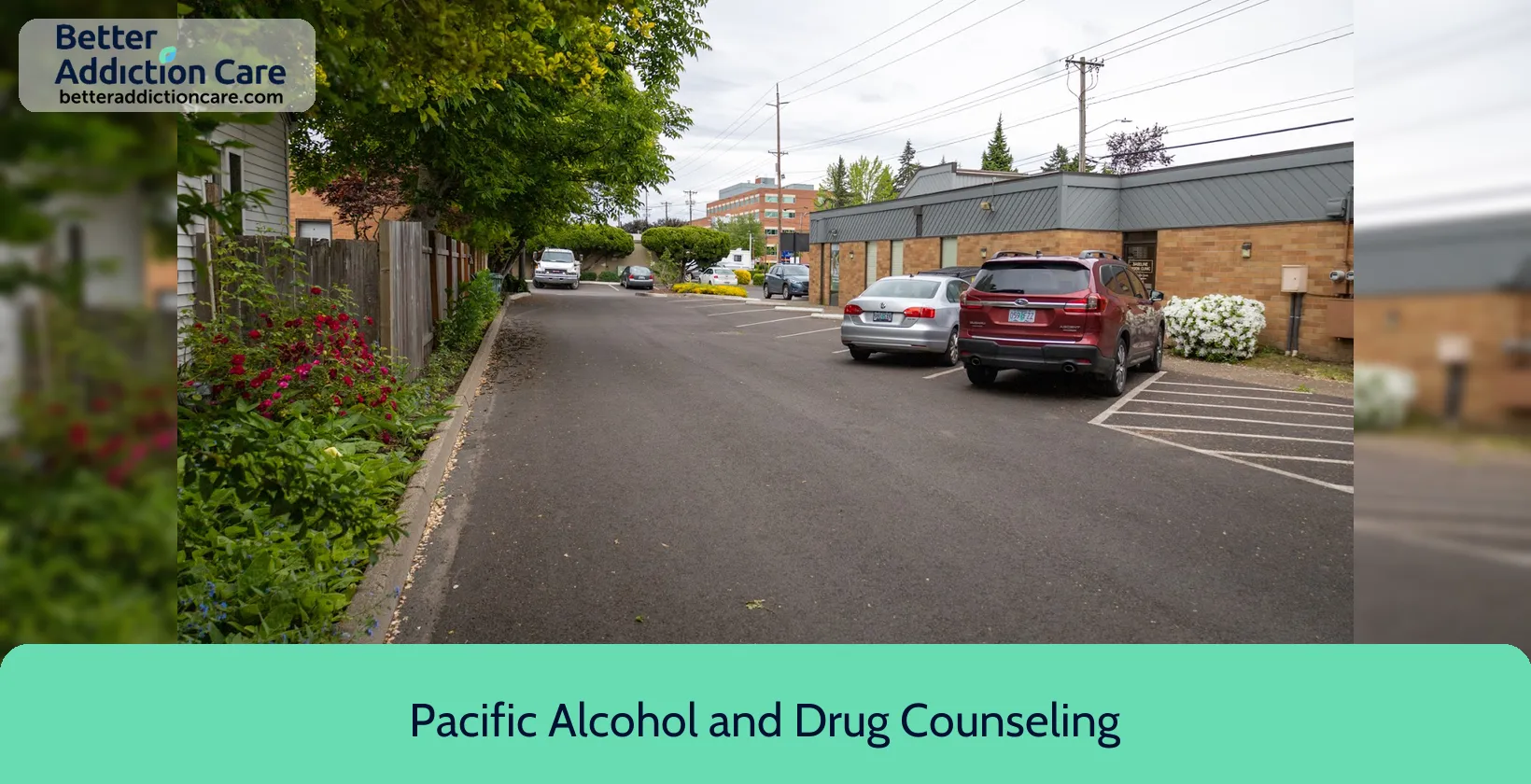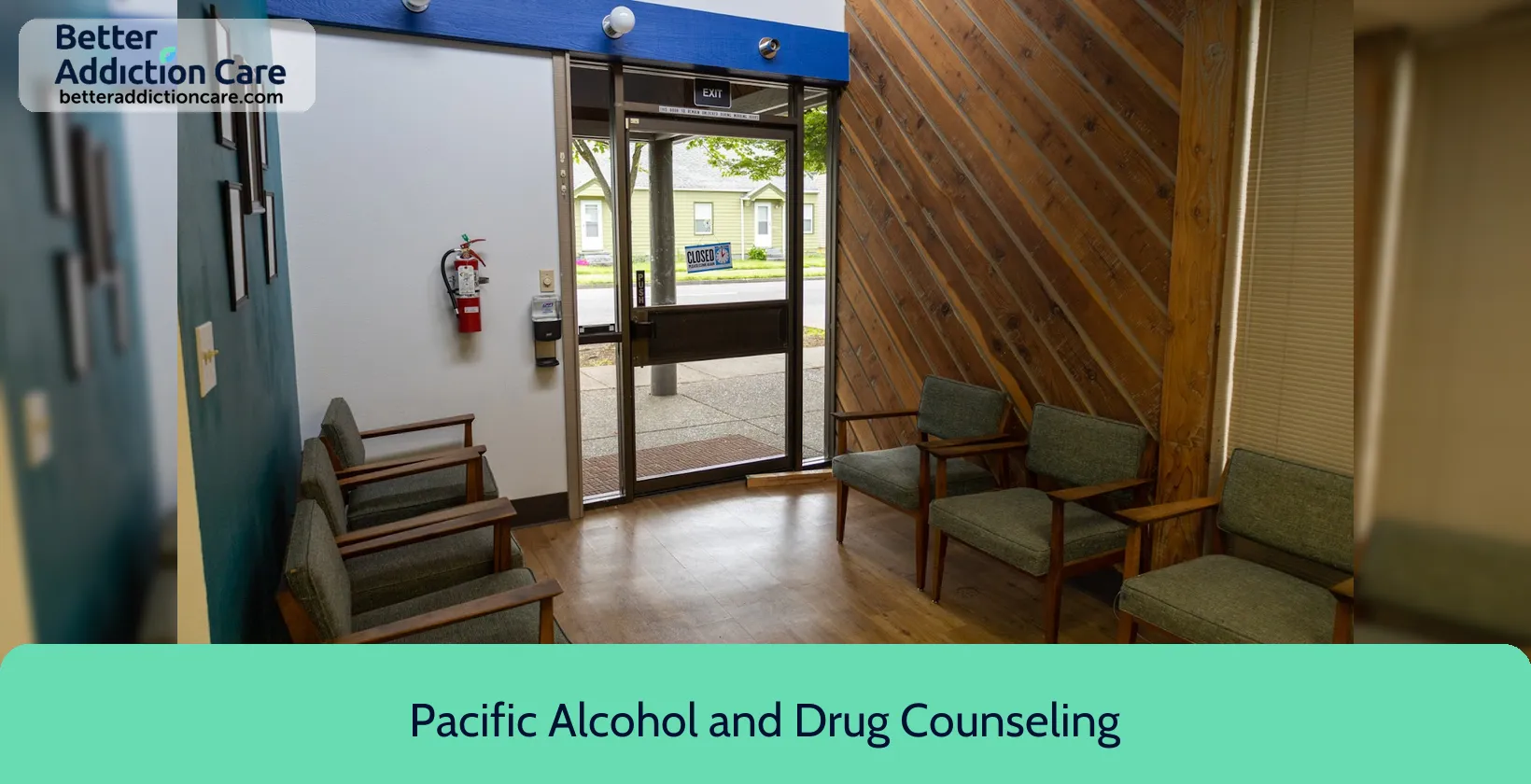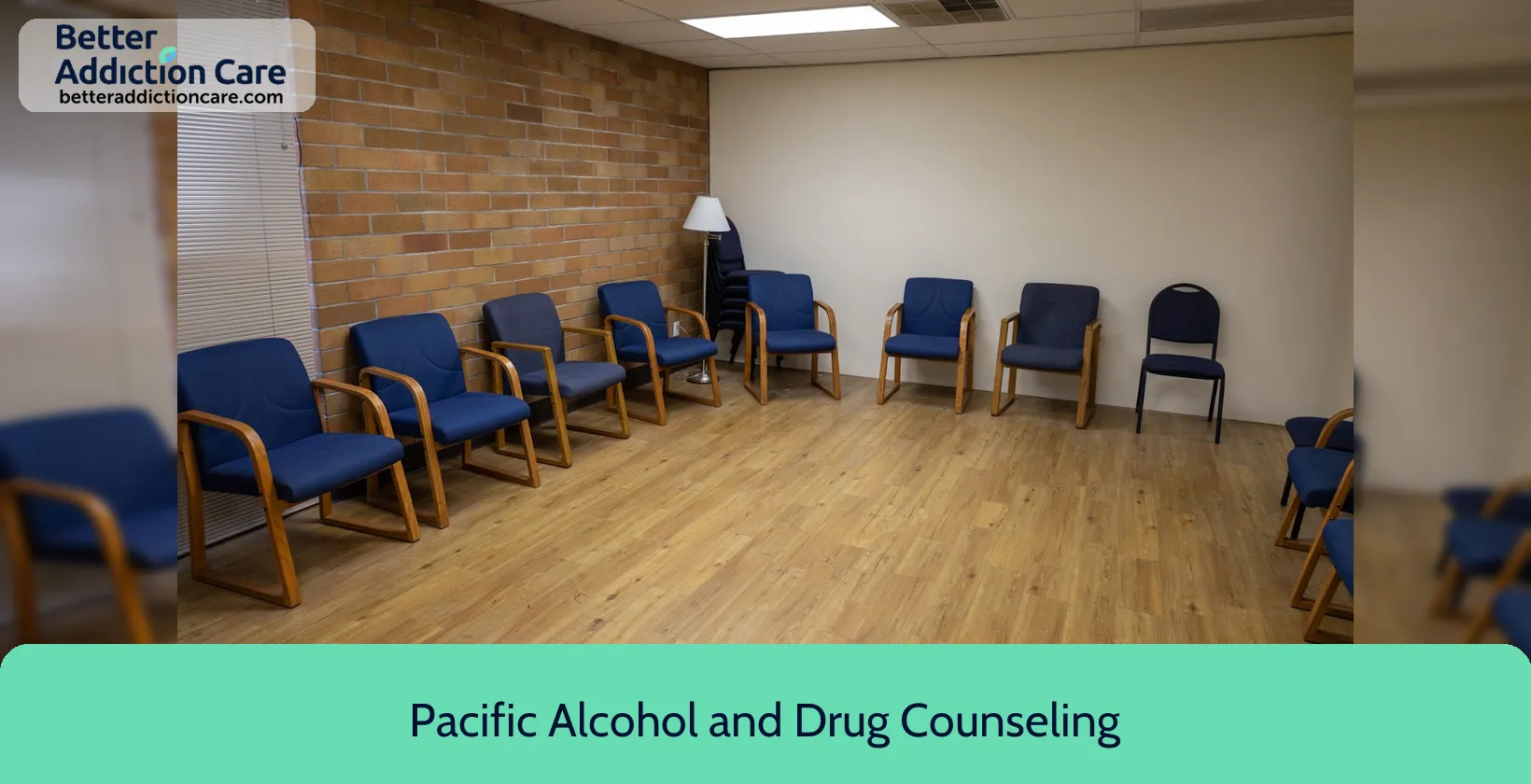Pacific Alcohol and Drug Counseling
Overview
Pacific Alcohol and Drug Counseling is a substance abuse treatment center for people seeking treatment near Washington County. As part of their treatment modalities for recovery, Pacific Alcohol and Drug Counseling provides cognitive behavioral therapy, substance use disorder counseling, and trauma-related counseling during treatment. Pacific Alcohol and Drug Counseling is located in Hillsboro, Oregon, accepting cash or self-payment for treatment.
Pacific Alcohol and Drug Counseling at a Glance
Payment Options
- Cash or self-payment
- Medicaid
Assessments
- Screening for tobacco use
- Comprehensive substance use assessment
- Interim services for clients
- Outreach to persons in the community
- Screening for mental disorders
Age Groups
- Young adults
- Adults
Ancillary Services
- Specially designed program for DUI/DWI clients
Highlights About Pacific Alcohol and Drug Counseling
6.83/10
With an overall rating of 6.83/10, this facility has following balanced range of services. Alcohol Rehabilitation: 8.00/10, Drug Rehab and Detox: 6.00/10, Insurance and Payments: 6.00/10, Treatment Options: 7.33/10.-
Alcohol Rehabilitation 8.00
-
Treatment Options 7.33
-
Drug Rehab and Detox 6.00
-
Insurance and Payments 6.00
Treatment At Pacific Alcohol and Drug Counseling
Treatment Conditions
- Alcoholism
- Substance use treatment
Care Levels
- Outpatient
- Intensive outpatient treatment
- Regular outpatient treatment
- Aftercare
Treatment Modalities
- Cognitive behavioral therapy
- Substance use disorder counseling
- Trauma-related counseling
- Smoking/vaping/tobacco cessation counseling
- Group counseling
Ancillary Services
Additional Services
- Pharmacotherapies administered during treatment
- Discharge Planning
- Drug or alcohol urine screening
Special Programs
- Clients who have experienced trauma
Contact Information
Read our Most Recent Article About Drug Addiction
DISCLAIMER: The facility name, logo and brand are the property and registered trademarks of Pacific Alcohol and Drug Counseling, and are being used for identification and informational purposes only. Use of these names, logos and brands shall not imply endorsement. BetterAddictionCare.com is not affiliated with or sponsored by Pacific Alcohol and Drug Counseling.
